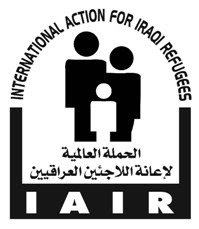Medact hosts meeting on health in Iraq
On February 11th Medact hosted a well-attended “Life and health for women under occupation in Iraq” about the health of women in Iraq
At the meeting Hanaa Ibrahim, founder of ‘Women’s Will Association of Iraq’ graphically described the parlous state of health care provision in Iraq.
She said that due to destruction of infrastructure, the majority of Iraqi hospitals have no clean running water or sewage disposal. The river Tigris is heavily contaminated with rubbish, waste and excrement. Many hospitals have completely inadequate equipment for medical and surgical services and patients are often required to bring their own supplies of consumables and medicines. Whereas there were 35,000 doctors prior to 2003, there are now only 15,000.
Many women have been widowed and live in poverty. They spend their resources on their families, often neglecting their own health, for example by economising and taking only half a course of antibiotics. Illiteracy is now a problem and women don’t understand the need to boil water. A reported six to seven pregnant women out of ten are having Caesarean sections.
There are many internally displaced persons living in ‘camps’ without any medical cover. There are increased incidences of water-borne diseases such as cholera, and also of polio, hepatitis (A, B and C), and TB. AIDS – previously unknown – is also on the increase. Very few children are being vaccinated. Hanaa acknowledged that that figures were needed and said that available data was often not made public. She called for research programmes and good statistics on these health issues.
Participants spoke of Iraq now being used as a ‘nuclear dumping ground’. It was claimed that there are areas where the ‘background’ radiation has increased 1000-fold since before the invasion, and that there are children with congenital malformations.
Intisar Ariabi described her experiences as a pharmacist in Yarmouk Hospital. Poor security meant that patients often did not come to hospital. When they did they were often asked to buy their own medications, and the system of planned purchase and distribution of medication supplies had broken down. Expired medicines are still sold in the market and there is a need to restore sewage disposal and water and power supplies.
The meeting was chaired by Dr Nawal Zangana of the International Action for Iraqi Refugees.
Subscribe to:
Post Comments (Atom)


No comments:
Post a Comment